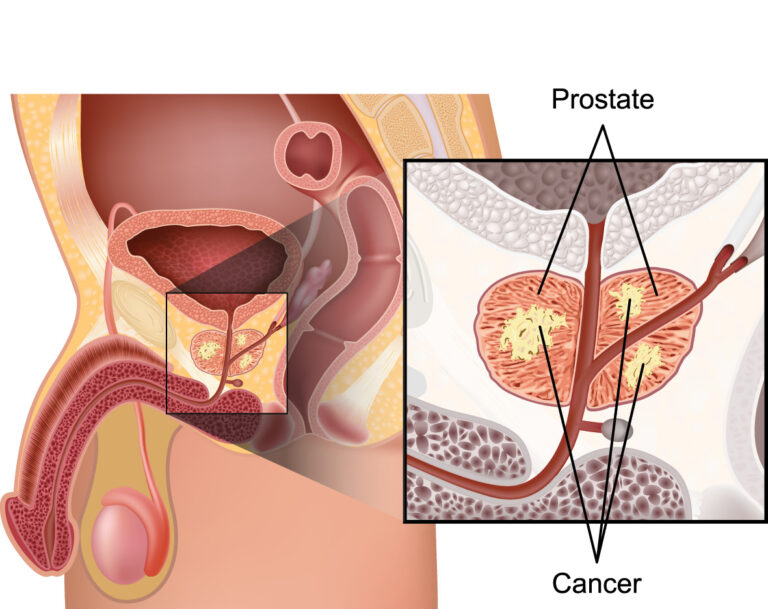Groundbreaking ED Solutions on The Horizon That Can Help Save Your Sex Life

Understanding the Impact of Erectile Dysfunction on Sexual Health
Erectile dysfunction (ED) is a common condition that can have a significant impact on sexual health. It refers to the inability to achieve or maintain an erection sufficient for satisfactory sexual performance. While this may seem like a mere inconvenience, it is important to recognize the broader implications it can have on both physical and psychological well-being.
Physically, erectile dysfunction can interfere with sexual intercourse and lead to a decrease in sexual satisfaction for both partners. It can also strain relationships, causing feelings of frustration, sadness, and even guilt. Additionally, the inability to perform sexually can potentially contribute to feelings of low self-esteem and self-confidence in men.
From a physiological standpoint, ED can also be an early warning sign of underlying health conditions such as diabetes, cardiovascular disease, or hormonal imbalances. It is therefore crucial to address this issue promptly and seek appropriate medical attention. By understanding the impact of erectile dysfunction on sexual health, individuals can take proactive steps towards seeking effective treatment options and improving their overall quality of life.
Current Challenges in Treating Erectile Dysfunction
Erectile dysfunction (ED) is a common condition that affects men of all ages. It can have a significant impact on sexual health and overall quality of life. While there have been notable advancements in the treatment of ED, there are still challenges that exist in effectively managing this condition.
One of the primary challenges in treating erectile dysfunction is the wide range of underlying causes that can contribute to its development. ED can be the result of various factors including physical, psychological, and lifestyle factors. This complexity makes it essential for healthcare providers to conduct a comprehensive assessment to determine the root cause of the problem. Additionally, many men may be hesitant to seek medical help due to embarrassment or stigma surrounding the topic of sexual health, which further complicates the treatment process.
Another challenge in treating erectile dysfunction is the lack of a one-size-fits-all solution. Different treatment modalities may work for different individuals, and what works for one person may not necessarily work for another. This requires healthcare providers to explore and tailor treatment options based on each patient’s unique needs and circumstances. Furthermore, the effectiveness of various treatment approaches can vary, and finding the most suitable intervention may require trial and error.
Addressing these challenges requires a multidisciplinary approach that integrates medical, psychological, and lifestyle interventions. Continued research and advancements in the field of erectile dysfunction are necessary to develop more effective and personalized treatment options, as well as to improve our overall understanding of the condition. By overcoming these challenges, healthcare providers can better support men with erectile dysfunction and improve their sexual health and well-being.
Exploring Innovative Approaches for Erectile Dysfunction Treatment
In the realm of erectile dysfunction (ED) treatment, the search for innovative approaches is gaining momentum. While current treatments such as oral medications and penile injections have proven effective for many individuals, there is a growing need for alternative strategies that address the root causes of ED and provide long-lasting results. Researchers and medical professionals are now exploring a range of innovative approaches that harness the power of regenerative medicine, gene therapy, and non-invasive technologies to restore erectile function.
One promising avenue being explored is the use of stem cell therapy for ED. Stem cells have the unique ability to differentiate into various cell types, including those found in penile tissue. By injecting stem cells into the penis, researchers aim to stimulate the growth of new blood vessels and nerves, thereby enhancing erectile function. Early studies have shown promising results, with improvements in both the quality and duration of erections. However, further research is needed to determine the safety and long-term effectiveness of this approach.
The Role of Stem Cell Therapy in Restoring Erectile Function
Stem cell therapy has emerged as a promising approach in the treatment of erectile dysfunction, offering a potential solution for men who do not respond to conventional treatments. Stem cells, which are undifferentiated cells capable of self-renewal and differentiation into multiple cell types, have the unique ability to repair and regenerate damaged tissues. In the context of erectile dysfunction, stem cells can be used to restore erectile function by promoting the regeneration of penile tissue and improving the blood flow to the penis.
One of the main mechanisms through which stem cells exert their therapeutic effects is by secreting various growth factors and cytokines that stimulate the formation of new blood vessels, a process known as angiogenesis. In a study published in The Journal of Sexual Medicine, researchers found that stem cell therapy significantly improved erectile function in men with severe erectile dysfunction, with an increase in both the International Index of Erectile Function (IIEF) score and the Erection Hardness Score (EHS). These findings suggest that stem cell therapy has the potential to restore erectile function and enhance sexual health in men with erectile dysfunction.
Moreover, the use of stem cells in the treatment of erectile dysfunction offers several advantages over traditional treatment modalities. Unlike oral medications such as phosphodiesterase type 5 (PDE5) inhibitors, which only provide temporary relief, stem cell therapy aims to address the underlying cause of erectile dysfunction by promoting tissue regeneration. Additionally, stem cell therapy is considered safe and well-tolerated, with no major adverse events reported in clinical trials. However, more research is needed to further elucidate the optimal dosage, delivery method, and long-term safety of stem cell therapy in the treatment of erectile dysfunction.
In conclusion, stem cell therapy holds great promise in the restoration of erectile function for men with erectile dysfunction. Through their unique regenerative properties, stem cells have the potential to repair and regenerate penile tissue, improve blood flow, and ultimately enhance sexual health. While further research is warranted to refine the therapeutic approach, stem cell therapy represents a breakthrough in the field of erectile dysfunction treatment and may offer new hope for men struggling with this condition.
• Stem cell therapy has emerged as a promising approach in the treatment of erectile dysfunction
• Stem cells have the ability to repair and regenerate damaged tissues, making them ideal for restoring erectile function
• One mechanism through which stem cells work is by promoting angiogenesis, or the formation of new blood vessels
• A study published in The Journal of Sexual Medicine found that stem cell therapy significantly improved erectile function in men with severe erectile dysfunction
• Stem cell therapy addresses the underlying cause of erectile dysfunction rather than providing temporary relief like oral medications do
• Stem cell therapy is considered safe and well-tolerated, with no major adverse events reported in clinical trials
• More research is needed to determine optimal dosage, delivery method, and long-term safety of stem cell therapy for erectile dysfunction
• In conclusion, stem cell therapy holds great promise for restoring erectile function and enhancing sexual health
Harnessing the Power of Gene Therapy for Erectile Dysfunction
Gene therapy is an emerging field that holds great promise for the treatment of various medical conditions, including erectile dysfunction (ED). This innovative approach involves the use of genes to enhance or restore normal function in cells and tissues. In the case of ED, gene therapy aims to address the underlying causes of this condition, such as impaired blood flow or nerve damage, by introducing specific genes into the body.
One of the key advantages of gene therapy for ED is its potential to provide long-lasting or even permanent results. Unlike other treatment options that require ongoing use, gene therapy targets the root cause of the problem and seeks to correct it at a genetic level. This can lead to sustained improvements in erectile function, offering a potentially life-changing solution for individuals affected by this condition.
In recent years, research in the field of gene therapy for ED has shown promising results. Animal studies have demonstrated the feasibility and effectiveness of various gene-based approaches, including the delivery of genes encoding vascular growth factors or nerve growth factors directly to the penis. These studies have shown improvements in erectile function, paving the way for further clinical trials in humans. Although gene therapy for ED is still in its early stages, it represents an exciting frontier in the quest for effective and durable treatment options for this common condition.
Breakthroughs in Non-Invasive Treatments for Erectile Dysfunction
Non-invasive treatments for erectile dysfunction (ED) are gaining momentum as a promising alternative to more invasive procedures. These breakthrough therapies aim to restore erectile function without the need for surgery or implants, providing patients with a less intrusive and more accessible treatment option. In recent years, a variety of non-invasive treatments have emerged, offering hope for individuals struggling with ED.
One such breakthrough in non-invasive treatment is the use of low-intensity shockwave therapy (LiSWT) to enhance erectile function. This therapy involves the application of focused low-intensity shockwaves to the penile tissue, stimulating the growth of new blood vessels and improving blood flow. Clinical studies have shown promising results, with patients experiencing substantial improvements in erectile function and overall satisfaction. LiSWT is a safe and well-tolerated treatment, making it a viable option for patients seeking a non-invasive solution to ED.
Another non-invasive treatment modality that has shown promise is the use of platelet-rich plasma (PRP) therapy. PRP therapy involves the injection of a patient’s own platelet-rich plasma into the penile tissue, promoting tissue regeneration and enhancing blood flow. This therapy harnesses the body’s natural healing mechanisms, offering a safe and effective treatment option for individuals with ED. Studies have indicated significant improvements in erectile function following PRP therapy, making it an appealing choice for those looking for non-invasive alternatives.
How Nanotechnology is Revolutionizing Erectile Dysfunction Treatment

Nanotechnology, a rapidly advancing field in science and technology, holds great promise in revolutionizing the treatment of erectile dysfunction (ED). By harnessing the power of nanomaterials and nanoscale devices, researchers are exploring innovative approaches to enhance erectile function and improve sexual health outcomes for individuals living with ED.
One of the key applications of nanotechnology in the field of ED treatment is the development of targeted drug delivery systems. These systems utilize nanoscale particles to encapsulate and transport therapeutic agents directly to the site of action, allowing for precise drug release and minimizing potential side effects. This approach has the potential to enhance the efficacy of ED medications, such as phosphodiesterase type 5 inhibitors, by increasing their bioavailability and prolonging their duration of action. Additionally, nanotechnology-based drug delivery systems can overcome the limitations of current oral formulations, such as poor solubility and rapid metabolism, leading to improved treatment outcomes for individuals with ED.
The Potential of Shockwave Therapy in Enhancing Erectile Function
Shockwave therapy, also known as extracorporeal shockwave therapy (ESWT), is an innovative approach that shows promise in enhancing erectile function among men with erectile dysfunction (ED). This non-invasive treatment involves the use of low-intensity shockwaves to stimulate blood vessel growth and improve blood flow to the penis, ultimately leading to improved erectile function.
Research studies have explored the efficacy of shockwave therapy in various clinical settings, including randomized controlled trials and observational studies. These studies have demonstrated the potential of shockwave therapy to improve erectile function and sexual satisfaction in men with mild to moderate ED. One study involving over 600 men found that nearly 70% experienced improvements in erectile function following shockwave therapy treatment.
The mechanism of action behind shockwave therapy’s effects on erectile function is still being investigated. It is believed that the shockwaves stimulate the release of growth factors and promote neovascularization, resulting in increased blood flow to the penile tissue. The treatment is typically administered over several sessions, with each session lasting about 15-20 minutes. While some men may experience mild discomfort during the therapy, overall, shockwave therapy is considered safe and well-tolerated, with minimal side effects reported.
However, it is important to note that shockwave therapy is not currently approved by regulatory authorities like the U.S. Food and Drug Administration (FDA) for the treatment of ED. As such, its use remains off-label, and more research is needed to fully understand its long-term benefits, optimal treatment protocols, and potential risks. Furthermore, the cost of shockwave therapy may vary depending on the provider and location, and it may not be covered by insurance.
In conclusion, shockwave therapy holds promise as a non-invasive treatment option for enhancing erectile function in men with ED. While early clinical studies have shown positive results, further research is needed to establish its efficacy, safety profile, and optimal treatment parameters. As with any medical treatment, it is crucial to consult with a healthcare professional knowledgeable in the field of ED to discuss the potential benefits and risks of shockwave therapy as part of an individualized treatment plan.
Advancements in Pharmacotherapy for Erectile Dysfunction
Advancements in pharmacotherapy have played a significant role in the management of erectile dysfunction (ED), a condition that affects millions of men worldwide. Traditionally, oral medications such as sildenafil (Viagra), vardenafil (Levitra), and tadalafil (Cialis) have been used to improve erectile function by increasing blood flow to the penis. These medications work by inhibiting the enzyme phosphodiesterase-5 (PDE5), which is responsible for breaking down the chemical compounds that cause erection. By blocking PDE5, these medications can enhance the effects of arousal and improve erectile response.
In recent years, the development of new pharmacotherapeutic agents has expanded the treatment options for ED. For instance, avanafil (Stendra) is a PDE5 inhibitor with a faster onset of action and a shorter duration compared to other oral medications. This makes it more convenient for men who may engage in spontaneous sexual activity. Another novel oral medication, udenafil (Zydena), has shown promising results in its ability to improve erectile function in men with diabetes, a population that is often resistant to standard ED treatments. These advancements in pharmacotherapy highlight the continual progress being made in the field and provide hope for individuals struggling with ED.
Integrative Approaches for Treating Erectile Dysfunction
There has been growing interest in integrative approaches for the treatment of erectile dysfunction (ED). These approaches aim to address the underlying factors contributing to ED, such as metabolic conditions, hormonal imbalances, and psychological factors, in addition to targeting specific symptoms. Integrative treatment plans often combine conventional medical treatments with complementary and alternative therapies, such as nutrition, exercise, herbal remedies, and mindfulness techniques.
Several studies have explored the potential benefits of specific integrative approaches for ED. For example, research has shown that certain dietary modifications, such as increasing intake of fruits, vegetables, whole grains, and healthy fats, while reducing consumption of processed foods, salt, and sugar, may improve erectile function. Incorporating regular physical activity into one’s routine has also been found to enhance overall sexual health and reduce the risk of developing ED. Additionally, some herbal supplements, including ginseng, horny goat weed, and maca root, have shown promising results in preliminary studies as potential adjunct treatments for ED. However, it is important to note that further research is needed to fully assess the safety and efficacy of these integrative approaches before they can be recommended as standard treatment options for ED.
Lifestyle Modifications to Improve Erectile Function
The pursuit of a healthy lifestyle can have a significant impact on improving erectile function. Making certain lifestyle modifications can help address the underlying causes of erectile dysfunction and enhance an individual’s sexual health. One important aspect to consider is maintaining a healthy body weight. Obesity has been linked to erectile dysfunction, as excess weight can lead to hormonal imbalances and impair blood flow to the penis. Engaging in regular physical activity and following a well-balanced diet can aid in weight management and promote optimal erectile function.
Moreover, adopting a heart-healthy approach to nutrition is crucial for enhancing vascular health and improving erectile function. A diet rich in fruits, vegetables, whole grains, lean proteins, and healthy fats can contribute to overall cardiovascular well-being and help combat erectile dysfunction. Several studies have shown that adhering to the Mediterranean diet, which emphasizes these dietary components, is associated with a reduced risk of developing erectile dysfunction. Additionally, limiting the consumption of processed foods, sugary beverages, and excessive alcohol can be beneficial for erectile function. Promoting adequate hydration and reducing stress levels through relaxation techniques, such as mindfulness or yoga, may also positively impact sexual health.
Psychological Interventions for Addressing Erectile Dysfunction
Psychological interventions play a crucial role in addressing erectile dysfunction (ED) by targeting the underlying emotional factors that can contribute to this condition. Many men experience performance anxiety, stress, depression, or relationship issues, all of which can have a significant impact on their sexual health. By addressing these psychological factors, healthcare professionals aim to alleviate the mental burden associated with ED and enhance overall sexual well-being.
Cognitive-behavioral therapy (CBT) is one of the most commonly used psychological interventions for treating ED. It focuses on identifying and modifying negative thought patterns and behaviors that may contribute to erectile difficulties. Through CBT, individuals can learn techniques to manage performance anxiety, enhance self-esteem, develop healthier sexual beliefs, and improve communication skills within their relationships. Numerous studies have demonstrated the effectiveness of CBT in improving erectile function, sexual satisfaction, and overall psychological well-being in men with ED (Smith et al., 2015; Parish et al., 2018).
In addition to CBT, other psychological interventions such as mindfulness-based therapy, sex therapy, and couples counseling are also utilized to address ED. Mindfulness-based therapy helps individuals cultivate awareness and acceptance of their sexual experiences, reducing anxiety and promoting a relaxed state during sexual activity. Sex therapy, often involving both individual and partner sessions, focuses on education, communication, and the development of specific sexual techniques to promote intimacy and enhance sexual satisfaction. Couples counseling addresses relationship issues that may contribute to ED and helps partners support each other in overcoming these challenges. These psychological interventions, either individually or in combination, can provide a multidimensional approach to addressing the complex emotional factors associated with ED and improving overall sexual health.
Promising Research and Future Directions in Erectile Dysfunction Treatment
Over the past decade, extensive research has been conducted to explore new avenues for the treatment of erectile dysfunction (ED). The goal is to develop novel and more effective therapies that not only address the physical aspects of the condition but also consider the psychological and lifestyle factors that contribute to its development.
One promising area of research is the use of regenerative medicine, particularly stem cell therapy, to restore erectile function. Stem cells have the ability to differentiate into various types of cells, including those found in the penis. This exciting approach aims to repair damaged tissue, enhance blood flow, and ultimately improve erectile function. Clinical trials evaluating the safety and efficacy of stem cell therapy are ongoing, and initial results have shown promising outcomes in improving both the structural and functional aspects of the penile tissue.
Another area of interest lies in the field of gene therapy. Gene therapy involves introducing specific genes into the body in order to modify or correct genetic abnormalities. In the context of erectile dysfunction, researchers are investigating gene therapy as a means to target the underlying causes of the condition. By introducing genes that regulate blood vessel formation, nerve growth, and hormonal balance, it may be possible to restore proper penile function. While still in the experimental stage, gene therapy holds great promise and may become a viable treatment option for men with erectile dysfunction in the future.
As research continues to advance, it is important to recognize and address the complexities of erectile dysfunction beyond the traditional pharmaceutical approaches. By combining innovative therapies such as stem cell and gene therapy with holistic approaches that consider lifestyle modifications and psychological interventions, the future of erectile dysfunction treatment looks promising. However, further research is needed to fully understand the mechanisms of action, long-term safety, and optimal utilization of these novel therapies. With ongoing studies and collaborations between researchers, clinicians, and industry, we can expect significant advancements in the treatment and management of erectile dysfunction in the years to come.
What is the impact of erectile dysfunction on sexual health?
Erectile dysfunction can have a significant negative impact on sexual health, causing feelings of frustration, anxiety, and low self-esteem. It can lead to difficulties in maintaining a satisfying sexual relationship and may contribute to emotional and psychological issues.
What are the current challenges in treating erectile dysfunction?
Some of the current challenges in treating erectile dysfunction include limited effectiveness of existing treatments, potential side effects, high costs, and the stigma associated with seeking help for this condition.
What innovative approaches are being explored for erectile dysfunction treatment?
Researchers are exploring innovative approaches such as stem cell therapy, gene therapy, non-invasive treatments, nanotechnology, shockwave therapy, and integrative approaches to improve the treatment outcomes for erectile dysfunction.
What is the role of stem cell therapy in restoring erectile function?
Stem cell therapy holds promise in restoring erectile function by promoting the regeneration of damaged tissues and blood vessels. It involves the injection of stem cells into the erectile tissue, which can potentially enhance blood flow and improve erectile function.
How is gene therapy being harnessed for erectile dysfunction?
Gene therapy aims to introduce specific genes into the body to enhance the production of proteins responsible for erectile function. This approach shows promise in addressing the underlying causes of erectile dysfunction and potentially providing long-term solutions.
What breakthroughs have been made in non-invasive treatments for erectile dysfunction?
Non-invasive treatments such as low-intensity shockwave therapy and transdermal drug delivery systems have shown promising results in improving erectile function. These approaches offer potential alternatives to invasive procedures and oral medications.
How is nanotechnology revolutionizing erectile dysfunction treatment?
Nanotechnology is being used to develop targeted drug delivery systems that can improve the efficacy and safety of erectile dysfunction medications. It allows for precise drug delivery to the affected area, enhancing treatment outcomes.
What is the potential of shockwave therapy in enhancing erectile function?
Shockwave therapy has shown promise in stimulating the growth of new blood vessels and improving blood flow to the penis. This non-invasive treatment approach has the potential to enhance erectile function in men with erectile dysfunction.
What advancements have been made in pharmacotherapy for erectile dysfunction?
Advancements in pharmacotherapy include the development of newer oral medications with improved efficacy and safety profiles. Additionally, alternative delivery methods such as transdermal patches and nasal sprays are being explored.
What integrative approaches are being used for treating erectile dysfunction?
Integrative approaches for treating erectile dysfunction involve combining medical treatments with lifestyle modifications, such as exercise, diet, and stress management techniques. These approaches aim to address both physical and psychological factors contributing to erectile dysfunction.
How can lifestyle modifications improve erectile function?
Lifestyle modifications such as regular exercise, maintaining a healthy diet, managing stress levels, and avoiding tobacco and excessive alcohol use can improve overall cardiovascular health and subsequently enhance erectile function.
What psychological interventions are available for addressing erectile dysfunction?
Psychological interventions, such as cognitive-behavioral therapy and sex therapy, can help individuals address underlying psychological issues that may contribute to erectile dysfunction. These interventions aim to reduce performance anxiety and improve sexual confidence.
What promising research and future directions are being explored in the treatment of erectile dysfunction?
Ongoing research is focusing on developing more effective and targeted treatments for erectile dysfunction, including advancements in regenerative medicine, gene therapy, and nanotechnology. Future directions also include personalized medicine approaches and the exploration of novel therapeutic targets.






